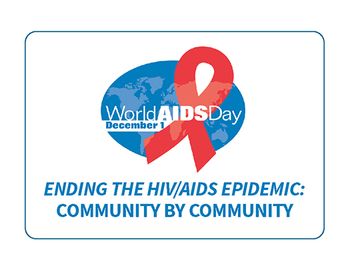
The Typhoid Vaccine Acceleration Consortium reports that a single dose of a typhoid conjugate vaccine was effective in children aged 9 months to 16 years.

The Typhoid Vaccine Acceleration Consortium reports that a single dose of a typhoid conjugate vaccine was effective in children aged 9 months to 16 years.

A new app is intended to crowdsource medical information regarding life-saving interventions with FDA-approved drugs as well as facilitate the development of novel drugs for neglected infectious diseases.

Low vaccination coverage contributed to a sharp rise in the number of circulating vaccine-derived poliovirus outbreaks worldwide from January 2018 to June 2019, according to the CDC.

A new study shows that patients with medical devices were more likely to have resistant infections.

Prior to this study’s publication, the literature about pediatric C diff infection was limited.

CDC investigators used HIV surveillance and pharmacy data to examine the status of HIV treatment and prevention in the United States.

The test is a new diagnostic tool that uses bacterial viability and a novel technology to detect bacterial colonization of Methicillin-resistant Staphylococcus aureus.

On December 3, 2019, the US Department of Health and Human Services announced the launch of program which will provide PrEP to people without prescription drug insurance coverage.

The PALM trial evaluated the safety and efficacy of several experimental treatments for Ebola in the Democratic Republic of Congo.

Jab could save 600,000 lives, and hundreds of millions in health care costs.

Authors of a new report published by CDC detail barriers to case-based surveillance in policy and technical infrastructure which need to be addressed in order to enhance national efforts surrounding the HIV epidemic.

Using genome sequencing could be a game-changer in tracing colonization related to health care-associated outbreaks.

Common interventions such as frequent hand washing can help stop the spread of methicillin-resistant Staphylococcus aureus, according to a new study that identified household environments as a reservoir for the bacteria.

Treatment-naive patients who are prescribed INSTI-based ART experienced weight gain and systolic blood pressure increases higher than peers on other forms of ART.

A survey of health care workers in Europe was translated to 25 languages and reached more than 18,000 participants.

Results from a new study indicate that early antiretroviral therapy treatment provides measurable benefits in infants who acquired HIV via vertical transmission.

Here is a look at infectious disease-related US Food and Drug Administration (FDA) news from the week of November 24, 2019.

We’ve rounded up a list of important US Food and Drug Administration (FDA) and US Department of Agriculture (USDA) recalls from this past week.

Stay up-to-date on the latest infectious disease news by checking out our top 5 articles of the week.

On December 1, 2019, international health organizations reflect on the advancements of the HIV/AIDS research field and acknowledge the challenges that still remain.

As November draws to a close, the Contagion® editorial team is recapping the trends and top infectious disease news of the month.

People with HIV who contract cryptococcal meningitis and suffer seizures experience greater neurocognitive decline and higher rates of death than those who don’t have seizures.

The survey was designed to provide more information on beliefs and perceptions toward HIV among Generation Z and millennials in the United States.

DNA methyltransferase, an epigenetic process, has been found to mediate sporulation and pathogenesis in C diff.

The CDC’s plan calls for 30% reduction in C diff infections, but work remains to be done.

The Advisory Committee on Immunization Practices has removed the recommendation for routine PCV13 use among adults aged ≥65 years.

In this novel type of outbreak, contamination was not isolated to a single food or facility, suggesting industry-wide contamination.

Ertapenem and daptomycin are commonly used in OPAT plans because they are broad-spectrum antimicrobial agents, despite their high cost.

Distributing free HIV self-tests to men who have sex with men resulted in a sharp increase in the number of infections identified, a new study by the CDC.

A new study has discovered that PrEP use is associated with lower levels of HIV anxiety in men, a benefit which could be incorporated into initiatives to increase PrEP uptake.